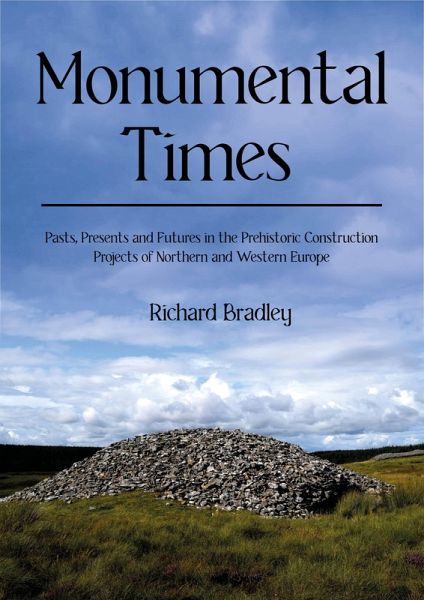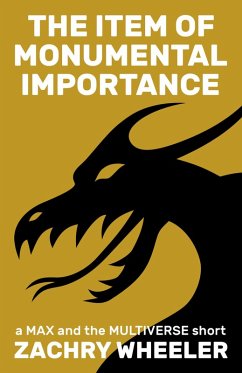
Monumental Times (eBook, ePUB)
Pasts, Presents, and Futures in the Prehistoric Construction Projects of Northern and Western Europe

PAYBACK Punkte
9 °P sammeln!
Richard Bradley''s latest thought provoking re-examination of familiar monumental archaeology drawing on latest discussions of multi-temporality and the implications of new levels of analysis afforded by developments in archaeological sciences such as DNA, radiocarbon dating and isotopes. This book is concerned with the origins, uses and subsequent histories of monuments. It emphasises the time scales illustrated by these structures, and their implications for archaeological research. It is concerned with the archaeology of Western and Northern Europe, with an emphasis on structures in Britain...
Richard Bradley''s latest thought provoking re-examination of familiar monumental archaeology drawing on latest discussions of multi-temporality and the implications of new levels of analysis afforded by developments in archaeological sciences such as DNA, radiocarbon dating and isotopes. This book is concerned with the origins, uses and subsequent histories of monuments. It emphasises the time scales illustrated by these structures, and their implications for archaeological research. It is concerned with the archaeology of Western and Northern Europe, with an emphasis on structures in Britain and Ireland, and the period between the Mesolithic and the Viking Age. It begins with two famous groups of monuments and introduces the problem of multiple time scales. It also considers how they influence the display of those sites today - they belong to both the present and the past. Monuments played a role from the moment they were created, but approaches to their archaeology led in opposite directions. They might have been directed to a future that their builders could not control. These structures could be adapted, destroyed, or left to decay once their significance was lost. Another perspective was to claim them as relics of a forgotten past. In that case they had to be reinterpreted. The first part of this book considers the rarity of monumental structures among hunter-gatherers, and the choice of building materials for Neolithic houses and tombs. It emphasises the difference between structures whose erection ended the use of significant places, and those whose histories could extend into the future. It also discusses 'megalithic astronomy' and ancient notions of time. Part Two is concerned with the reuse of ancient monuments and asks whether they really were expressions of social memory. Did links with an 'ancestral past' have much factual basis? It contrasts developments during the Beaker phase with those of the early medieval period. The development of monumental architecture is compared with the composition of oral literature.
Dieser Download kann aus rechtlichen Gründen nur mit Rechnungsadresse in A, B, BG, CY, CZ, D, DK, EW, E, FIN, F, GR, HR, H, IRL, I, LT, L, LR, M, NL, PL, P, R, S, SLO, SK ausgeliefert werden.













